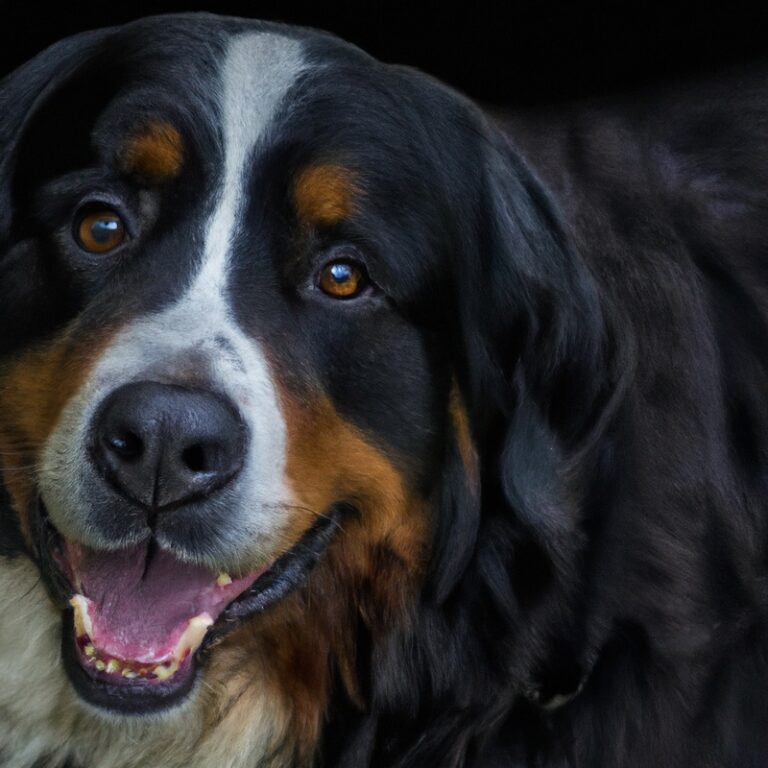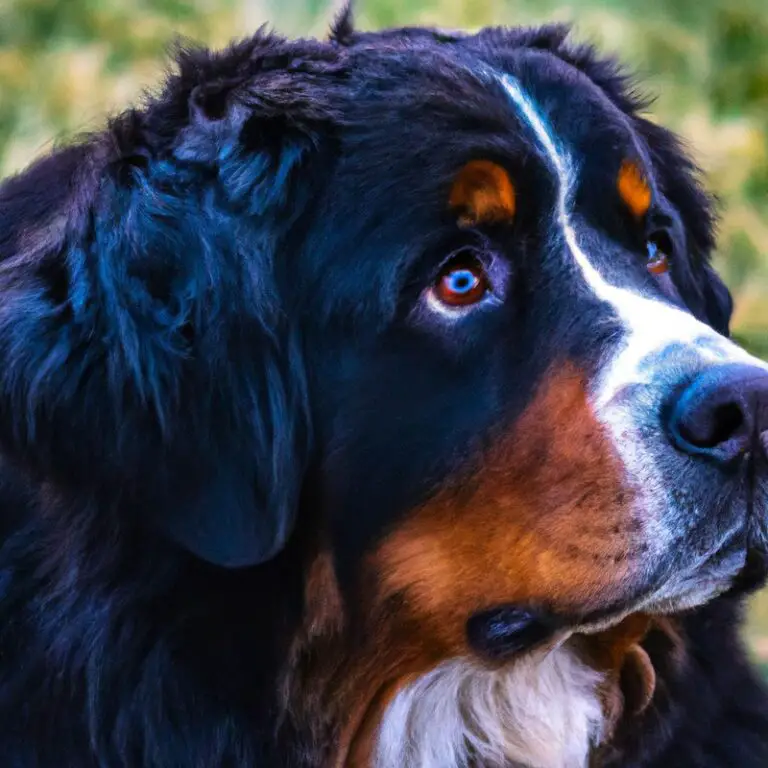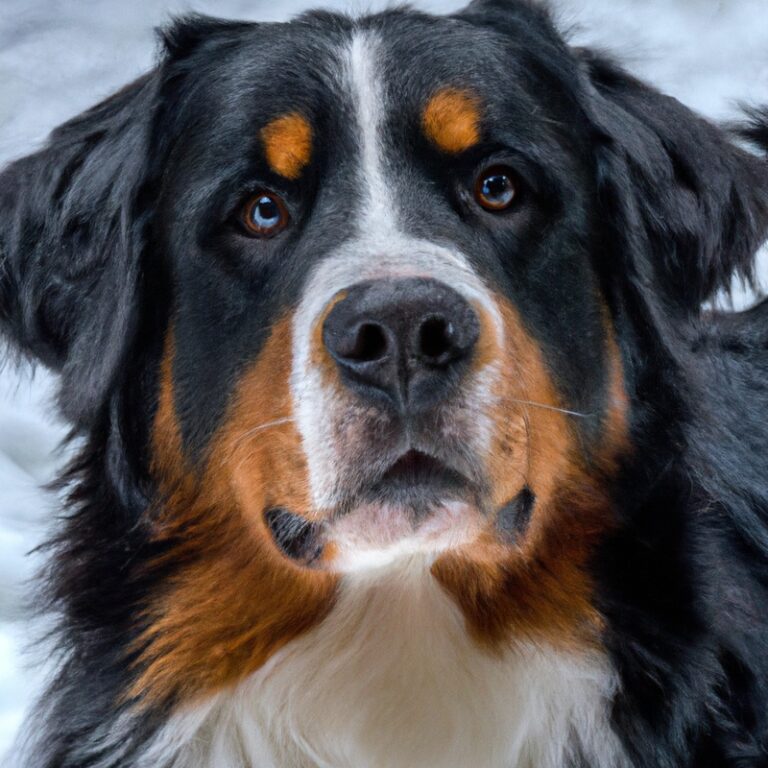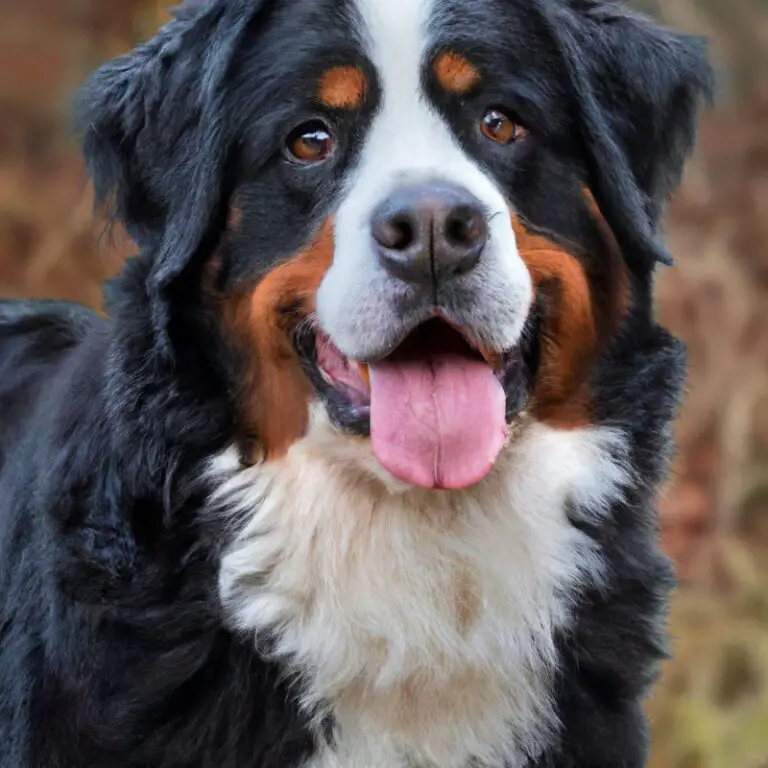What Are The Key Considerations For Bernese Mountain Dog Adoption?
Key Takeaways:
- You should consider the breed’s size and exercise needs before adopting a Bernese Mountain Dog.
- Grooming requirements, including regular brushing and shedding, should be taken into account before adopting.
- Bernese Mountain Dogs thrive in a family environment and require socialization and companionship.
- Health issues such as hip dysplasia and cancer should be considered before adopting a Bernese Mountain Dog.
Are you thinking about adopting a Bernese Mountain Dog?
These lovable and majestic creatures make excellent companions, but before taking the plunge, there are several key considerations to keep in mind.
From understanding their exercise needs and grooming requirements to evaluating the space and financial commitments required, adopting a Bernese Mountain Dog is a decision that shouldn’t be taken lightly.
In this article, I will guide you through the essential factors you need to consider before bringing home a Bernese Mountain Dog, ensuring a smooth and fulfilling adoption process.
| Consideration | Explanation |
|---|---|
| Temperament | The Bernese Mountain Dog is known for its calm and gentle nature. They are typically friendly, patient, and good-natured. |
| Size and Exercise Needs | Bernese Mountain Dogs are large and require regular exercise to stay healthy. They enjoy outdoor activities and need space to roam. |
| Grooming | These dogs have a thick coat that requires regular brushing to prevent matting and to keep them looking their best. |
| Health Issues | Bernese Mountain Dogs are prone to certain health issues, including hip and elbow dysplasia and cancer. |
| Training and Socialization | Training and socialization are important for Bernese Mountain Dogs to ensure they become well-behaved and happy pets. |
| Lifespan and Commitment | Bernese Mountain Dogs have a relatively short lifespan of around 6-8 years. Potential owners should be prepared for the commitment and responsibilities associated with caring for this breed. |
Key Considerations for Bernese Mountain Dog Adoption
Understanding the breed’s exercise needs and activity level
Understanding the exercise needs and activity level of the Bernese Mountain Dog is essential before adopting one.
This breed is known for its love of physical activity and requires regular exercise to stay happy and healthy.
They enjoy activities like walks, hikes, and playtime in the yard.
Providing them with ample opportunities for exercise will help prevent behavioral issues and ensure their overall well-being.
It’s important to be prepared to dedicate time and energy to meet the exercise needs of this active breed.
Recognizing the grooming requirements of Bernese Mountain Dogs
To properly care for a Bernese Mountain Dog, it’s important to recognize their grooming requirements. Bernese Mountain Dogs have a thick double coat that requires regular brushing to prevent matting and to remove loose hair.
They shed throughout the year but experience heavy shedding twice a year.
In addition to brushing, they may also need regular bathing, nail trimming, and ear cleaning. Proper grooming not only keeps them looking their best but also helps maintain their overall health and comfort.

Evaluating the space and environment necessary for a Bernese Mountain Dog
When considering adopting a Bernese Mountain Dog, evaluating the space and environment is essential.
These dogs are large and active, so they require ample room to move and play.
A spacious yard or access to open spaces is ideal.
Additionally, Bernese Mountain Dogs thrive in a family setting and require plenty of human interaction.
They are not suited for small apartments or homes where they may feel cramped.
Creating a welcoming and comfortable environment is crucial for the overall well-being of a Bernese Mountain Dog.

Financial considerations for owning a Bernese Mountain Dog
Owning a Bernese Mountain Dog comes with its fair share of financial considerations. Here are some key points to keep in mind:
- Upfront costs: The initial expense for purchasing or adopting a Bernese Mountain Dog can vary. Additionally, you’ll need to consider the costs of spaying/neutering, vaccinations, and microchipping.
- Ongoing expenses: Bernese Mountain Dogs are a large breed, which means they require plenty of food. Monthly expenses for high-quality dog food can add up. Vet visits, grooming, and flea/tick prevention are also ongoing costs to factor in.
- Training and socialization: Investing in a training class or hiring a professional trainer can help ensure your Bernese Mountain Dog is well-behaved and socialized. These costs should be factored into your budget.
- Health care: Unfortunately, Bernese Mountain Dogs are prone to certain health issues, including hip dysplasia and cancer. It’s essential to have a plan in place for potential medical expenses, such as regular check-ups and emergency care.
- Insurance: Consider obtaining pet insurance to help cover any unexpected veterinary expenses. This can provide peace of mind and protect your finances in case of an emergency.
Remember, owning a dog involves financial responsibility. By considering these factors, you can better plan for the financial commitment of owning a Bernese Mountain Dog.

Considering the time commitment required for training and socialization
Training and socialization are crucial for Bernese Mountain Dogs.
You need to dedicate time and effort to ensure they develop into well-behaved and balanced pets.
Here are some key considerations for the time commitment required:
- Daily training sessions: Bernese Mountain Dogs are intelligent and eager to please, so consistent and positive training sessions are essential. This includes commands, leash training, and basic obedience.
- Socialization opportunities: Expose your dog to various people, animals, and environments from a young age. This helps them become comfortable and confident in different situations.
- Exercise and mental stimulation: Bernese Mountain Dogs are active and need both physical and mental exercise. Plan for daily walks, playtime, and interactive toys to keep them engaged and prevent boredom.
- Patience and consistency: Training and socialization require patience and consistency. Be prepared to invest time in reinforcing commands, addressing behavior issues, and providing positive reinforcement.
Remember, adopting a Bernese Mountain Dog means committing to their ongoing training and socialization needs.
They thrive on companionship and are happiest when they are included as part of your daily routine.
Assessing the compatibility of a Bernese Mountain Dog with your lifestyle and family situation
Assessing the compatibility of a Bernese Mountain Dog with your lifestyle and family situation is important to ensure a successful adoption. Consider the following:
- Exercise Needs: Bernese Mountain Dogs require daily exercise, including walks and playtime. Assess if you can provide the necessary physical activity.
- Space: These dogs are large and need space to roam. Determine if you have enough room in your home and yard for a Bernese Mountain Dog.
- Family Commitment: Berners are social animals and thrive in a family environment. Assess if your family has the time and willingness to give the dog attention and care.
- Grooming: Bernese Mountain Dogs have a thick double coat that requires regular grooming. Consider if you can commit to the necessary brushing and maintenance.
- Health Considerations: Berners are prone to certain health issues. Research these potential concerns and assess if you can manage any potential medical needs.
Assessing compatibility with your lifestyle and family situation is vital to ensure a happy and harmonious relationship with your Bernese Mountain Dog.
Finding a Reputable Breeder or Rescue Organization
Researching and identifying reputable Bernese Mountain Dog breeders
Researching and identifying reputable Bernese Mountain Dog breeders is an important step when considering adoption. Here are a few key considerations:
- Start by researching online and reading reviews from other dog owners. Look for breeders with positive feedback and a good reputation.
- Visit the breeder’s website and check if they provide information about their breeding practices, health testing, and the care they provide to their dogs.
- Reach out to the breeder and ask questions about their breeding program, health guarantees, and socialization of the puppies.
- Request to visit the breeder’s facilities and meet the puppies and their parents in person to assess their living conditions and temperament.
Remember, finding a reputable breeder ensures that you bring home a healthy and well-socialized Bernese Mountain Dog.
Exploring Bernese Mountain Dog rescue organizations
When exploring Bernese Mountain Dog rescue organizations, there are a few key factors to consider.
Firstly, research the reputation and experience of the organization.
Look for reviews and testimonials from previous adopters.
Secondly, inquire about the adoption process and requirements.
Ask about any fees, home visits, and application forms.
Thirdly, take the time to meet the dogs available for adoption.
Interact with them to see if there is a connection.
Remember to ask questions and gather all the necessary information before making a decision.
Preparing for a Bernese Mountain Dog
Setting up a suitable living environment and dog-proofing your home
To create a safe and comfortable living environment for your Bernese Mountain Dog, it’s important to dog-proof your home.
Here are some tips:
- Secure hazardous items: Keep harmful substances like cleaning products and medications out of reach. Store them in locked cabinets or on high shelves.
- Protect electrical cords: Use cord covers or hide them behind furniture to prevent your dog from chewing on them and getting electrocuted.
- Remove small objects: Keep small items like toys, coins, or jewelry off the floor to prevent your dog from swallowing them and potentially choking.
- Secure trash bins: Use a latched trash can or keep it in a closed cabinet to prevent your dog from digging through and ingesting harmful items.
- Block off forbidden areas: Use baby gates or close doors to prohibit access to areas that could be hazardous or off-limits.
Remember, creating a dog-proof home not only keeps your Bernese Mountain Dog safe but also provides them with a comfortable and secure living space.
Purchasing essential supplies such as food, toys, and grooming tools
To ensure you have everything you need for your Bernese Mountain Dog, it’s important to purchase essential supplies such as food, toys, and grooming tools. When it comes to food, choose a high-quality dog food that is appropriate for their size and age.
Toys should be durable and interactive to keep them entertained and mentally stimulated.
Grooming tools like a brush, nail clippers, and shampoo are necessary to keep their coat and nails in good condition. Remember to choose products specifically designed for dogs to ensure their safety and well-being.
Preparing for the arrival of your Bernese Mountain Dog and introducing them to their new home
Preparing for the arrival of your Bernese Mountain Dog is an exciting time! Here are some key considerations to make their transition to their new home smooth:
- Create a safe and comfortable space for your dog: Set up a cozy bed, provide fresh water, and have some chew toys for them to enjoy.
- Puppy-proof your home: Remove any hazardous items or plants that your dog could chew on or potentially injure themselves with.
- Establish a routine: Dogs thrive on consistency, so start a feeding and walking schedule right away.
- Introduce them gradually: Allow your Bernese Mountain Dog to explore their new surroundings slowly, one room at a time.
- Socialize your dog: Introduce them to new people, pets, and environments to help them become well-adjusted and friendly.
- Be patient and gentle: Your dog may feel anxious or overwhelmed initially, so give them time to adjust and provide lots of love and reassurance.
Remember, every dog is unique, so be prepared to adapt your approach to suit your dog’s individual needs. Enjoy this special time with your new furry family member!
Training and Socializing Your Bernese Mountain Dog
Understanding the importance of early socialization and training for Bernese Mountain Dogs
Early socialization and training are vital for Bernese Mountain Dogs. It helps them develop good behavior, confidence, and adaptability.
By exposing them to different people, animals, and environments, they become well-rounded and less prone to fear or aggression.
Training sessions teach them obedience commands, ensuring they can be well-behaved members of your family and community. Regular exercise and mental stimulation are also crucial for their overall well-being.
Remember, starting early and being consistent is key to raising a happy and well-adjusted Bernese Mountain Dog.
Finding professional training resources and classes
Looking for professional training resources and classes for your Bernese Mountain Dog? Here are a few tips to help you out:
- Start by asking your veterinarian or local pet store for recommendations. They often have great connections and can point you in the right direction.
- Look for positive reinforcement-based training methods. These are effective and focus on rewarding good behavior rather than punishing bad behavior.
- Consider enrolling your dog in obedience classes or hiring a professional dog trainer. They can provide structured training sessions and valuable guidance.
- Take advantage of online resources such as videos, articles, and forums dedicated to Bernese Mountain Dog training. They can provide additional insights and tips.
Remember, training is an ongoing process, so be patient and consistent. With the right resources and classes, you can help your Bernese Mountain Dog become a well-behaved and happy companion.
Tips for effective training and socialization at home
To effectively train and socialize your Bernese Mountain Dog at home, keep these tips in mind:
- Start early: Begin training and socializing your Bernese Mountain Dog from a young age to establish good habits and prevent behavioral issues.
- Use positive reinforcement: Reward your dog with treats, praise, and attention for good behavior to encourage them to repeat it.
- Be consistent: Set clear rules and stick to them consistently, so your dog knows what is expected of them.
- Gradually expose them to new experiences: Introduce your dog to different environments, people, and animals slowly and gradually to help them feel more comfortable and confident.
- Practice daily: Dedicate time each day to training and socialization exercises to reinforce positive behaviors.
- Seek professional help if needed: If you’re struggling with training or socialization, don’t hesitate to consult a professional dog trainer for guidance and support.
Remember, patience and consistency are key when training and socializing your Bernese Mountain Dog at home.
Maintaining the Health and Well-being of your Bernese Mountain Dog
Understanding common health issues in Bernese Mountain Dogs and preventive measures
Bernese Mountain Dogs are prone to certain health issues. Here are some common ones and preventive measures you can take:
- Hip and Elbow Dysplasia: Regular exercise, a healthy diet, and maintaining a healthy weight can help reduce the risk of these joint problems.
- Cancer: Early detection through regular veterinary check-ups is crucial. Keep an eye out for any abnormal lumps or growths and report them to your vet.
- Gastric Dilatation-Volvulus (GDV: Feeding smaller, frequent meals and avoiding exercise immediately after meals can help prevent this life-threatening condition.
- Progressive Retinal Atrophy (PRA: Regular eye exams can help detect this genetic disease early. Breeding dogs should be tested to prevent passing it on.
- Heat Sensitivity: Bernese Mountain Dogs don’t tolerate heat well. Keep them cool in hot weather and avoid vigorous exercise during peak temperatures.
Taking preventive measures and seeking regular veterinary care will go a long way in keeping your Bernese Mountain Dog healthy and happy.
Developing a balanced diet and exercise routine for your Bernese Mountain Dog
When it comes to developing a balanced diet and exercise routine for your Bernese Mountain Dog, the key is to focus on their specific needs.
For their diet, ensure a high-quality, dog food that is suitable for their size and age.
Include a balance of protein, healthy fats, and carbohydrates.
For exercise, aim for daily walks and playtime, as well as regular opportunities for them to stretch their legs and explore.
Keep in mind their size and joint health when planning activities.
Consult with a veterinarian for personalized recommendations.
Regular veterinary care and vaccinations for your Bernese Mountain Dog
Taking your Bernese Mountain Dog for regular veterinary care and vaccinations is essential for their health and well-being. It helps to prevent and detect any potential health issues early on.
Your veterinarian will provide routine check-ups, administer necessary vaccinations to protect against common diseases, and offer recommendations for maintaining your dog’s overall health.
It’s important to prioritize these regular visits to ensure your Bernese Mountain Dog stays happy and healthy for years to come.
Frequently Asked Questions about Bernese Mountain Dog Adoption
What is the average lifespan of a Bernese Mountain Dog?
The average lifespan of a Bernese Mountain Dog is generally between 6 to 8 years. However, some Berners have been known to live up to 10 years or even longer with proper care and a healthy lifestyle.
Factors such as genetics, diet, exercise, and overall health play a significant role in determining the lifespan of a Bernese Mountain Dog.
It’s important to provide them with regular veterinary check-ups, quality nutrition, exercise, and a loving environment to maximize their lifespan.
How much exercise does a Bernese Mountain Dog need?
A Bernese Mountain Dog needs moderate exercise to stay healthy and happy. Aim for at least 30 minutes to an hour of exercise daily.
This can include walks, playtime in a fenced yard, or even activities like hiking or swimming.
Keep in mind that Bernese Mountain Dogs have a heavier build, so avoid excessive exercise, especially in hot weather. Regular exercise helps to prevent obesity, promote good mental health, and strengthen the bond between you and your furry friend.
Are Bernese Mountain Dogs good with children?
Bernese Mountain Dogs are known for being excellent with children.
They are gentle, patient, and love to be around people, especially youngsters.
Their calm and friendly nature makes them a great family pet and a perfect companion for kids.
However, it is important to always supervise interactions between children and dogs to ensure safety.
Proper socialization and training are also key to fostering a strong bond between the dog and the child.
Do Bernese Mountain Dogs require a lot of grooming?
Bernese Mountain Dogs do require a fair amount of grooming due to their thick, double coats.
Regular brushing is necessary to prevent matting and to keep their fur healthy and tangle-free.
They also shed quite a bit, so expect some fur around your home.
Additionally, these dogs are prone to certain skin conditions, so keeping their coat clean and well-maintained is important.
Regular baths, nail trimming, and ear cleaning should also be part of their grooming routine.
Can Bernese Mountain Dogs adapt to apartment living?
Bernese Mountain Dogs can adapt to apartment living if their exercise and mental stimulation needs are adequately met.
While they are large dogs, they can adjust to limited space as long as they receive daily exercise, such as walks and playtime.
Mental stimulation through puzzle toys and training also helps keep them content.
It’s important to note that Bernese Mountain Dogs thrive on human companionship, so spending quality time with them is essential.
Regular grooming is necessary due to their long coat shedding.
Final Verdict
Adopting a Bernese Mountain Dog requires careful consideration and preparation. Their exercise needs, grooming requirements, living space, and financial commitment must be taken into account.
Training and socialization are crucial for their well-being, and finding a reputable breeder or rescue organization is vital.
Additionally, maintaining their health through a balanced diet, regular veterinary care, and preventive measures is essential. Finally, addressing common FAQs about Bernese Mountain Dogs can help potential adopters make informed decisions.
Overall, adopting a Bernese Mountain Dog can be a rewarding experience if approached with care and dedication.







